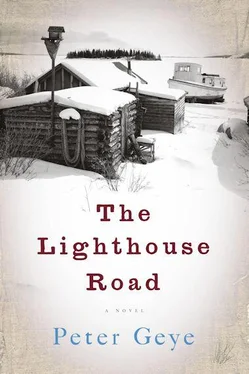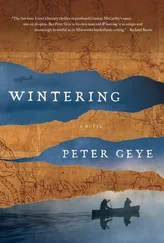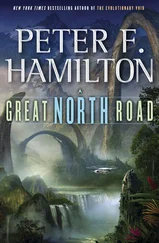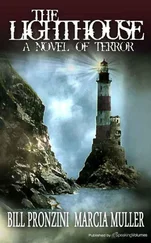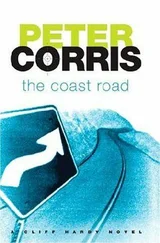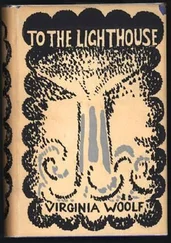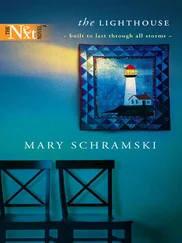"How did you know about the postcards, Odd?"
He turned to face her. "You think I just sat on my hands all those years? While you and Hosea were downstairs tending to the shop, I was supposed to practice my grammar lessons up in that house of secrets? Honestly?" He ran his hands through his hair, took a long drag on his cigarette, looked out the window onto the darkness of night, the lightness of falling snow. "You have me pegged a fool, don't you?"
Now her voice rose. "You've known all this time and never said anything?"
"What in the world was I supposed to say?"
There was no answer to that question, and they both knew it. He stood at the window trying to think this whole thing straight. But he couldn't. Something was nagging him. "He's still taking pictures?"
"Oh, Odd. He hasn't taken a picture of me in years." She stood up, walked over to him. "I'm forty-one years old. Too old for just about anything. Too old to have a baby."
He turned to face her, there were tears streaming down his cheeks but his voice was perfectly calm. "Don't you see? Your whole life you've been his captive. He ain't got rights. You've paid your dues."
"He was as much a father as I ever had, Odd. He gave me a place to live. He bought me nice clothes. He taught me how to read."
Odd swung around. "I've got to think," he said. "Give me a minute to think."
And so he did, as he marched around his boat, into the dark reaches of the fish house and back into the lamp and lantern light. Rebekah sat with her head in her hands, unable to face the young man she had loved from the first moment of his life. This man she had loved in ways she hadn't known were possible.
He must have made ten laps around the boat. After five minutes he stopped and rolled another cigarette and lit it and took a coffee can from under the fish counter before he resumed the stool in front of Rebekah. "When will the baby be born?"
"I suppose the baby would come sometime next summer."
"Okay. All right." He flicked the cigarette ash. "I ain't gonna beg you. I ain't gonna tell you the hundred reasons Hosea ought to be shot for the way he keeps you under his thumb. But I will tell you what we're gonna do."
She shook her head sadly, said, "Oh, Odd."
"I listened to you when you asked. You do the same for me." He pulled a bunch of twine from the coffee can, under which lay a wad of cash, which he also withdrew. "I got upwards of a thousand dollars here. I got a boat that only needs the motor put in it." He put the money back in the can.
"We'll leave as soon as the ice-out—"
"I'll be five months pregnant by then. My belly will be out to here," she interrupted. She held her hand six inches in front of her stomach.
"All right. Hold on, now," Odd said. He took another lap around the boat, looked in at the motor box, did a little figuring. Then he looked back across the fish house at her. "Then we'll leave next week. Before the cove freezes. Danny and I will get to work on the motor first thing tomorrow morning." He nodded, felt sure of himself.
He walked over to her. "We have to get out of here. Start fresh. Give this baby a chance." Now he put his hand on her stomach.
" Where would we go. Odd? How?" Her voice was full of doubt.
"We'll take my boat. We could go up to Duluth. Or on down to Canada. Cross the lake to Michigan. We could go all the way down to the Soo, and then anywhere in the world from there. I'm a young man. I can get a job anywhere." He took her chin in his hand and raised her face to his. "Haven't we talked about this? Ain't it true that you've asked me a hundred times to get you out of this place?"
She smiled another of those sad smiles and felt the tears welling in her eyes. "What about the fish house, Odd? What about the farm?"
"They ain't going anywhere. I'll see if Danny wants to live here. He can look after it. Maybe buy it from me. I'll talk to Mayfair. See about selling the farm. None of that's important anyway." He was talking faster than he could think.
She shuddered, did not know what to say, much less what to think.
"What do you say, Rebekah? We could make a start of it."

T rond urged his horse across the shallow, half-frozen Burnt Wood River. The horse was as weary as the rest of the world, and he moved through the snow and brittle boscage with complete resignation. The steam blowing from his nostrils blended with the fog blowing in off the lake.
Trond had his collar turned up against the wind, his chin tucked to the shoreward side of the trail. He'd never been to the wigwam village and was frankly daunted by his errand. He knew Joseph Riverfish, knew him as a fine and good man, a family man, a superb woodsman and fisherman. What Trond didn't know, among a hundred such details, was how one called out in greeting, how one would sit in the wigwam, whether the settlers were even allowed in the wigwam, for that matter. Upon Hosea Grimm's suggestion, he carried in his saddlebags a sack of candies for the children and a warm pint of Canadian whiskey for Riverfish himself.
When Riverfish's dogs caught the horse's scent they sent up a randy yammer. The village was in a crescent-shaped meadow, bordered on the north by a forest of spruce and on the south by the lake. The dogs were staked in a line along the western edge of the village, and as Trond passed them on his horse, they lunged playfully, pulling their chains to their limits. There were a dozen of them, Spitz breeds from some arctic part of the world.
The village was six wigwams. A plume of gentle smoke rising from each. Four canoes were tipped over, half covered with snowdrifts. The dogs must have alerted Joseph Riverfish because he stood at the entrance of the nearest wigwam, a bear pelt over his shoulders like a shawl.
"Hello!" he shouted and waved. "Hello, there!"
Trond raised a hand in greeting and rode the last hundred feet and swung off the horse, which he patted on the withers. "Hello, Joseph," he said.
Riverfish spoke three or four languages— among them German and English— but each with the heavy accent of his native Ojibwa. "It be a cold day for horseback riding, no?" he asked.
"A cold day indeed," Trond said, taking off his mitten and extending his hand.
Riverfish pulled his own hand from his bearskin and the two men shook. "Come inside, the fire is warm and there's plenty to smoke."
"All right," Trond said. He stepped to his saddlebag and removed the candies and hooch and then bent to hobble the horse.
Inside, a fire built on a plush bed of glowing embers warmed the conical room. The fire was circled not with rocks, as Trond was accustomed to, but with lengths of birch logs. Riverfish's wife sat to the left of the buckskin entrance, her feet tucked beneath her, her hands busy with beadwork, her belly full with her tenth child. Four of her youngsters sat in the circle, the girls playing with dolls made of willow withes, the boys whittling sticks.
Riverfish unrolled a rush mat and suggested Trond sit. Before Joseph sat himself, he found his pipe and packed it with kinnikinnick and lit it with a twig pulled from the fire. He offered the pipe to Trond, who knew enough to take a puff. The pipestone lit up like a firefly.
Trond handed the pipe back to Riverfish, who took a smoke.
"The stem is from a hazel tree. We split it and hollow it and glue it together again." He smiled broadly. "Our glue is from the backbone of the namé, what you call the sturgeon fish."
Trond took another smoke, then offered Riverfish the bottle of whiskey. "I brought this for you. And this for the children." Now he extended the candies.
The children stopped their play and giggled and came around the fire. Joseph gave them each a candy.
Читать дальше
